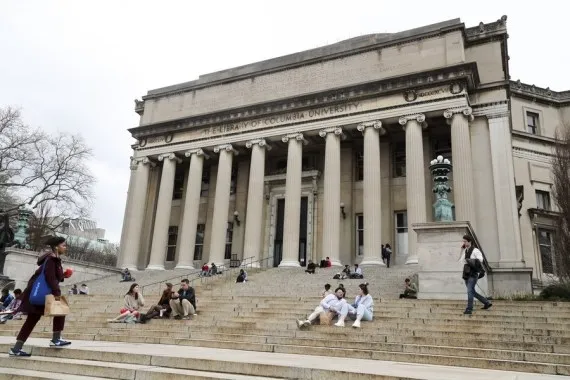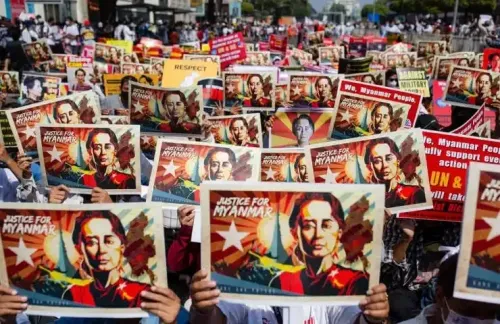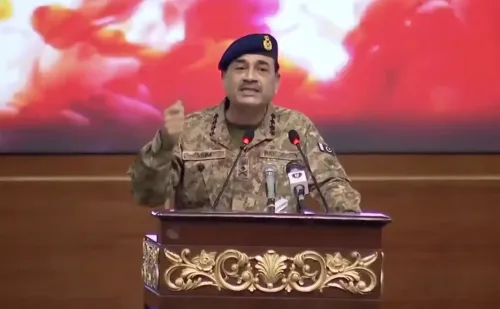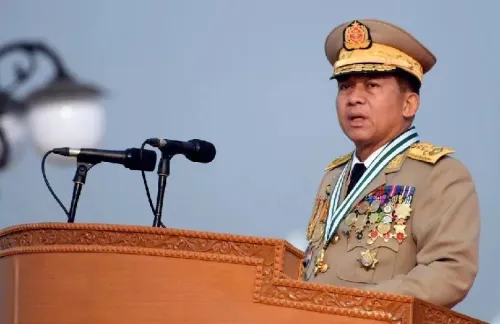Is There a Decline in Indian Student Enrollment at US Colleges in 2025?

Synopsis
Key Takeaways
- 10% drop in Indian graduate enrollment for 2024-25.
- Majority of schools report visa concerns as the main issue.
- India continues to be the largest source of foreign students.
- Political climate affects international education trends.
- International students contribute $55 billion to the economy.
Washington, Nov 17 (NationPress) US universities have observed a 10 percent decrease in graduate enrollment from India for the academic year 2024-25, with an even steeper 17 percent drop in international student numbers reported for the fall of 2025, as detailed in a recent report funded by the US State Department.
The “Open Doors” report from the Institute of International Education, published on Monday, indicated that over 61 percent of the surveyed institutions have noted a decline in Indian student enrollment for the fall semester of 2025.
The findings, derived from a survey of 825 US institutions, revealed that more than 96 percent of the institutions reporting reductions in new student numbers attributed this to concerns regarding visa applications, closely followed by travel limitations to the United States.
Despite this trend, in 2024-25, India continued to be the largest contributor of foreign students in the US, making up nearly 50 percent of total graduate students and around one-third of all students, which reflects an overall increase of 10 percent. However, graduate programs themselves experienced a 10 percent decline.
The report further highlighted that more than half of the US colleges and universities surveyed for the fall of 2025 reported a decrease in their new international student enrollment.
In recent months, the Trump administration has heightened its scrutiny of international students, implementing several measures that universities believe are impacting enrollment.
The Department of Labour has initiated over 170 investigations into potential abuses of the H-1B visa process, which is a significant post-study pathway for international graduates.
The White House has also endorsed a new $100,000 application fee for H-1B submissions.
A spokesperson from the White House defended the Trump administration’s H-1B visa policy, stating to IANS that the $100,000 fee is a “major initial step to curb system abuses.”
“The $100,000 fee required for new H1-B visa applications is a significant first step to prevent abuses of the system and ensure that American workers are not replaced by lower-paid foreign labor,” White House Spokeswoman Taylor Rogers told IANS.
Additionally, conservative lawmakers have advocated for legislation aimed at significantly limiting or even abolishing the H-1B program, with proposals that would eliminate any pathway to permanent residency for visa holders.
On Friday, Republican Congresswoman Marjorie Taylor Greene reiterated her intention to propose a bill that would “ban H1B visas across all sectors” except for the medical field.
“A ban on H1B visas will also positively impact the housing market. Ending H1B visas means more job opportunities for Americans and increased availability of homes for them… When Americans secure well-paying jobs, they can afford homes without competing against legally imported labor on visas and wealthy asset management firms,” she added.
Moreover, the State Department has revoked at least 6,000 international students visas since January.
International students constitute about 6 percent of the US higher education demographic and contribute nearly $55 billion to the American economy, according to the US Department of Commerce. Their spending sustains over 355,000 jobs nationwide.









